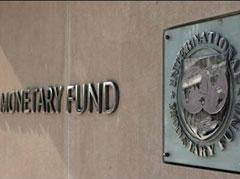Analytics, Economics, EU – Baltic States, Financial Services, Latvia
International Internet Magazine. Baltic States news & analytics
Monday, 29.12.2025, 19:27
IMF initially demanded widening lat peg corridor
 Print version
Print version |
|---|
The newspaper has gotten hold of copies of the full set of documents that Latvia signed with the IMF. The documents state that on some matters Latvia will have to report to the IMF on a daily basis.
Although IMF was the first international donor to offer an EUR 1.68 billion loan for Latvia, the IMF experts are not fully convinced by the Ivars Godmanis (Latvia's First Party/Latvia's Way) government's economic stabilization program. The main reason is the government's resolve to change the current lat/euro peg unchanged, although the lat is overvalued against the euro.
In a risk assessment of December 19, the IMF experts admit that the prospective agreement with Latvia carries significant financial risks. Latvia's substantial external debt and the decision to keep the lat/euro peg unchanged can have a negative effect on Latvia's ability to return the loan to the IMF. Keeping the lat peg rate unchanged requires very stringent long-term fiscal discipline in both the public and private sectors.
Latvia also requires considerable external financial aid, effective mechanisms for restructuring private liabilities, and renewed approach to international capital markets, the document says.
Another IMF document suggests that the IMF initially did not consider the option of a stable lat. The IMF offered two options: one option was expanding the lat peg corridor from the current 1% to 15%. In such a case, the economic downturn would be faster, yet it would be followed by a much faster growth. Latvia's competitiveness would improve significantly, helping reduce the current account deficit, consumption would contract 6%.
The other option envisaged faster introduction of the euro in Latvia, according to the new lat/euro exchange rate.
This option, however, was turned down, mostly because of the European Commission's objections, which categorically disagreed to a faster introduction of the euro in Latvia, Biznes&Baltija reports.
Therefore the IMF takes no responsibility for Latvia's strategy for overcoming its economic problems.
The IMF experts warn that, unlike other countries that are trying to get over the crisis, Latvia cannot hope for favorable external conditions. The political support for the reforms may change, competitiveness may not improve, and the confidence of financial markets can return later than expected.
In order to prevent this, and have the money, which will be lent to Latvia, returned, the IMF has set a very strict report mechanism, much stricter than the one Latvia had to observe during the Soviet rule, Biznes&Baltija writes.
The memorandum of understanding includes a number of measures that Latvian institutions must implement, and a set of criteria and deadlines that Latvia must meet, or else funds from other international donors may be put on hold.
Latvia will have to implement a number of economic measures, for instance, to ensure the stability of the lat and achieve fiscal balance, there are also political requirements.
Latvia will have to report to the IMF on a quarterly basis, and the Finance Ministry will have to report to IMF about bank restructuring operations on a daily basis as well as about delayed external payments of the government and local governments.
The Bank of Latvia will have to present daily reports about currency operations and currency exchange rates, whereas the Financial and Capital Market Commission will have to report the IMF about deposit volumes at Latvian banks and specifically about deposits at Parex banka.
It means that these three institutions will have to send to the IMF six daily reports, one weekly report, thirteen monthly reports, five quarterly reports and one joint annual report.
The IMF, based on information presented by the government, estimates the economic downturn in Latvia to continue for at least two years. Latvia's GDP will keep decreasing at least until 2011: this year the GDP will decrease 5% and next year 3%, the IMF said. The falling wages and increasing unemployment will have a strong impact on private consumption, investment volumes will also decrease.
The IMF also estimates inflation in Latvia to decrease from 14.7% at end-2008 to 7.2% at the end of this year, and a decrease in current account deficit.
As reported, the IMF categorically denies that it had demanded the Latvian government to devalue the lat.
The International Monetary Fund's head of the Baltic States and Poland Department Christoph Rosenberg wrote in his Internet blog at the RGE Monitor Website: "Even if we at the IMF were to favor a devaluation, which we don't, a program without national ownership would be doomed to fail," as the newspaper Diena reported.
Rosenberg also underlines that a devaluation in Latvia would have severe regional contagion effects, market confidence in foreign banks invested in the Baltics and similar countries would likely be affected, with implications for their ability to access wholesale financing. Latvia's banks, both domestic and foreign, and its legal system are at this point not prepared for such a shock.
He also underlines that devaluation would not significantly reduce Latvia's external financing needs, furthermore large-scale fiscal adjustment under the program is in line with experience of successful such episodes elsewhere and therefore provides some assurances that it will not undermine the currency peg.
"Finally, Latvia has a clear exit strategy from its currency predicament: euro adoption," Rosenberg wrote.








 «The Baltic Course» Is Sold and Stays in Business!
«The Baltic Course» Is Sold and Stays in Business!

